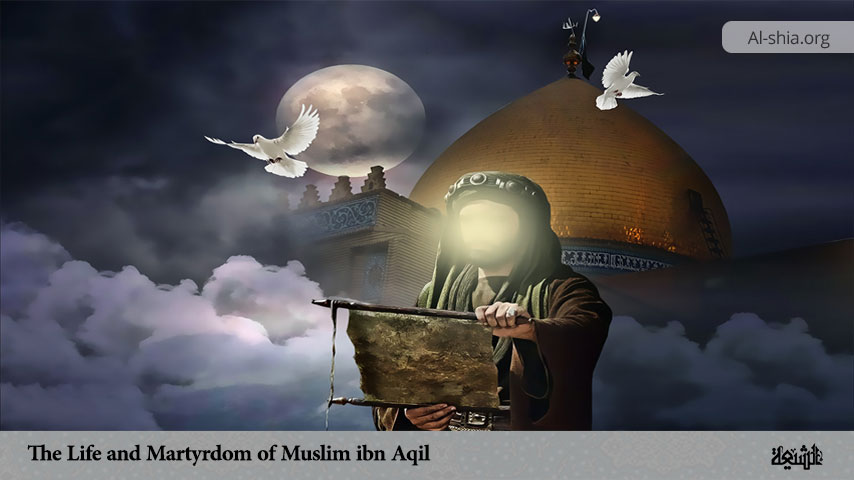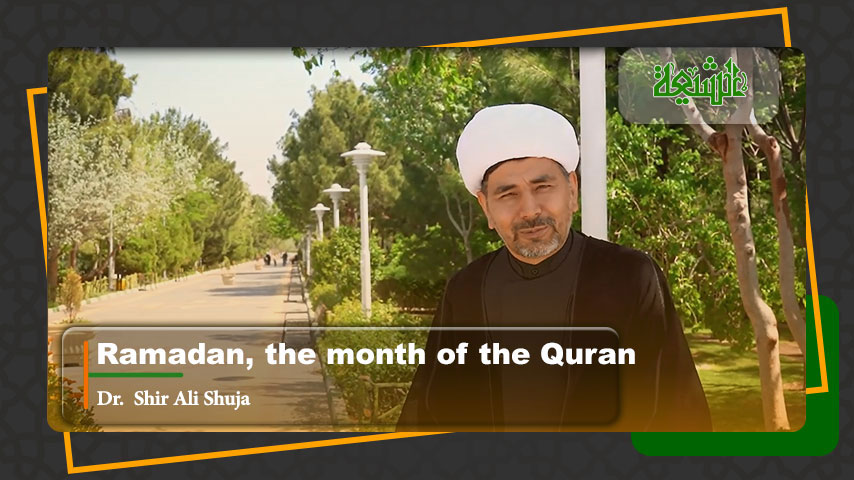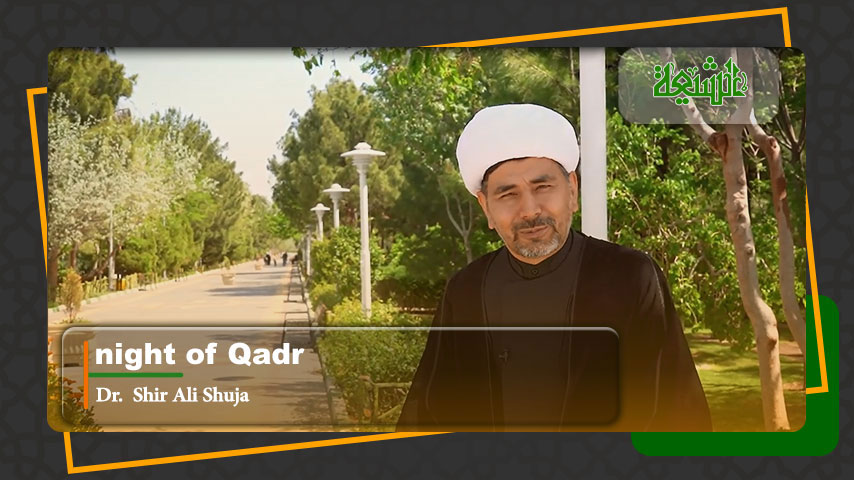Muslim ibn Aqil ibn Abi Ṭālib was a cousin of Imam al-Husain (PBUH) and his representative to the Kufa before the Battle of Karbala. He was sent by Imam Husain (PBUH) to Kufa to provide the Imam with a status report of the city and the people who invited him to Kufa immediately after the death of Mu’awiyah.
Birth and Lineage
His actual birthday is unknown. However, there are some different reports which claim that his date of birth is ranging from the early 640s CE to the late 650s. His father was Aqil ibn Abi Talib (Imam Ali’s brother) who was described as a genealogist and an eloquent speaker. His mother was a freed slave of Nabataean origin whose name is differently given as Ulayya, Khalila, and Hilya.
According to a Sunni scholar, Ibn Habban (d. 354/965) in his book “al-Thiqat”, he writes: “Muslim ibn ‘Aqil al-Hashimi. His teknonym was Abu Dawud. He was the most similar person to the Prophet (PBUHH) among the sons of ‘Abd al-Muttalib. He was contemporaneous with some of the companions of the Prophet.” (Ibn Habban, al-Thiqat, vol.5 p.391)
Early life
Muslim ibn Aqil seems to have enjoyed a reputation as a fierce warrior. However, prior to his representation of Imam al-Husain (PBUH) in Kufa, very little and scattered information about the life of Muslim ibn Aqil was known. According to some historical sources, one of the events documented in Muslim’s life is his presence in conquests of Northern Africa, the city of al-Bahnasa (in Egypt) in 21/641-2 during the caliphate of Umar ibn al-Khattab. Similarly, another event recorded in the early life of Muslim ibn Aqil was his presence in the Battle of Siffin, as he was among the army of the Commander of the Faithful.
Wife and Children
Muslim married Ruqayya, the daughter of Imam ‘Ali (PBUH). Thus, he was Imam Ali’s son-in-law. According to some sources, he also had a wife from the clan of Banu ‘Amir b. Sa’sa’a. There are disagreements in historical sources regarding the names and the number of Muslim’s children. in some old historical sources, Muslim’s children are mentioned as martyrs of Karbala, including Abdullah ibn Muslim and Muhammad ibn Muslim. On the contrary, in less reliable accounts in later sources, other children of Muslim ibn Aqil such as ‘Awn, Muslim, ‘Ubayadullah, Ja’far, and Ahmad are mentioned as martyrs of Karbala.
Muslim in Mecca
After the death of Mu’awiyah on Rajab 15, 60 AH and the demand by the governor of Medina for the Imam’s allegiance to Yazid. On Rajab 28, 60/680, the Imam decided to leave Medina for Mecca. Based on the historical reports, Muslim ibn Aqil was among those who accompanied Imam al-Husain (PBUH) when he departed Medina toward Mecca. In the same vein, Imam received numerous invitation letters from the people of Kufa, calling him to Iraq. Therefore, in order to ascertain the genuineness of the claims by the people of Kufa and the situation, the Imam sent Muslim to Kufa together with Qays Ibn Mushir al Saydawi; Umara Ibn Abdullah al Saluli, and Abdullah and AbdulRahman, sons of Shaddad al Arhabi.
Envoy to Kufa
On Ramadan 15, 60 A.H/June 19, 680, Muslim departed Mecca and when he reached Medina, he prayed in the Prophet’s Mosque and said farewell to the dearest members of his family. Then he hired two guides and they set out with him, but both were struck by severe thirst and were unable to continue their journey. At this moment, Muslim ibn Aqil wrote a letter and sent it through Qays Ibn Mushir: “I set out from Medina with two guides and they missed the way and got lost. Both were overcome by thirst and soon died. But we kept going until we came to water. We were only saved at the last moment of our lives. That water is in a place called al-Madiq in a low valley. I have taken this as a bad omen for my mission. If you consider it so, you could relieve me and send another in my place.”
On receiving the letter, Imam Husain (PBUH) replied thus: “I am afraid that your request in the letter to relieve you from the task which I sent you is only cowardice. Therefore, go on with your task which I assigned to you.”
Muslim in Kufa
On Shawwal 5/July 9, Muslim ibn Aqil finally arrived at Kufa and based on some reports, he stayed in Mukhtar ibn Abi ‘Ubayd’s house. The Shi’as frequently visited him, where he read the letter of Imam Husain (PBUH) to them. During his stay in Kufa, Muslim began to get people to pledge their allegiance to Imam Husain (PBUH). Consequently, 12000 people pledged their allegiance to Muslim ibn ‘Aqil on behalf of Imam Husain (PBUH) and announced their preparation to help the Imam. On other accounts, the number of those who pledged their allegiance amounted to 18000 or 30,000.
On Dhul-Qa’dah 11/August 13, Muslim wrote a letter to Imam al-Husain (PBUH) in which he confirmed the large number of those who pledged their allegiance and invited the Imam to come to Kufa.
Meanwhile, following an increase in the supporters of Imam Husain in Kufa, some people felt threatened with this and wrote a letter to Yazid to replace the governor of Kufa; Nu’man ibn Bashir with Ubaydullah ibn Ziyad as the governor and which he did.
Ubaydullah tracked down the associates of Muslim ibn ‘Aqil and threatened the heads of tribes and told them to provide him with the names and whereabouts of people in their tribes who pledged allegiance to Muslim or promise that no person from their tribe will oppose the Umayyad; otherwise, their blood would be shed and their property would be confiscated. With these threats and actions, Kufa was no longer safe. Thus, Muslim relocated to the house of Hani ibn Urwa to protect his life. Ibn Ziyad found the hideout of Muslim through an informant, possibly named Ma’qil, who infiltrated the inner circle of Muslim by pretending to be a supporter and donating to his cause. He then summoned Hani ibn ‘Urwa to his palace and asked him to surrender Muslim to him. But since Hani refused to do so, he was arrested.
Muslim’s Arrest
With a combination of threats and bribes, however, Ibn Ziyad successfully induced the tribal leaders to abandon Muslim and withdraw their men. Thus, Muslim ibn Aqil was left alone wandering around the city until a woman called “Taw’a” sheltered him. The next morning, however, her son Bilal disclosed the location of Muslim to the government agents.
Ibn Ziyad sent Muhammad ibn Ash’ath with seventy other people to arrest Muslim and take him to the palace. After a fight between Muslim and the governmental forces, Muhammad ibn Ash’ath told Muslim to surrender and promised him safety. Thus, Muslim surrendered himself and was taken to the palace. However, Ibn Ziyad rejected Ibn Ash’ath’s guarantee of security.
Martyrdom
Finally, Muslim was brought to Ibn Ziyad and after arguments between him and Muslim, he commanded Bukayr ibn Hamran (who was injured in a skirmish with Muslim) to take Muslim to the roof of the palace and then decapitate him. When Muslim was beheaded, his torso was thrown down of the palace.
Before his martyrdom, Muslim was worried about Imam al-Husain. Thus, he asked ‘Umar ibn Sa’d, who was from the Quraysh, to hear and enforce his will. His first will was that someone be sent to the Imam to dissuade him from going to Kufa. The second will was that his corpse be shrouded and then buried, and the third was that his debts be paid by selling his sword and other items at his disposal.
After the martyrdom of Muslim ibn Aqil, Ibn Ziyad commanded the murder of Hani ibn ‘Urwa as well and then sent their heads to Yazid ibn Mu’awiya in Syria.
















